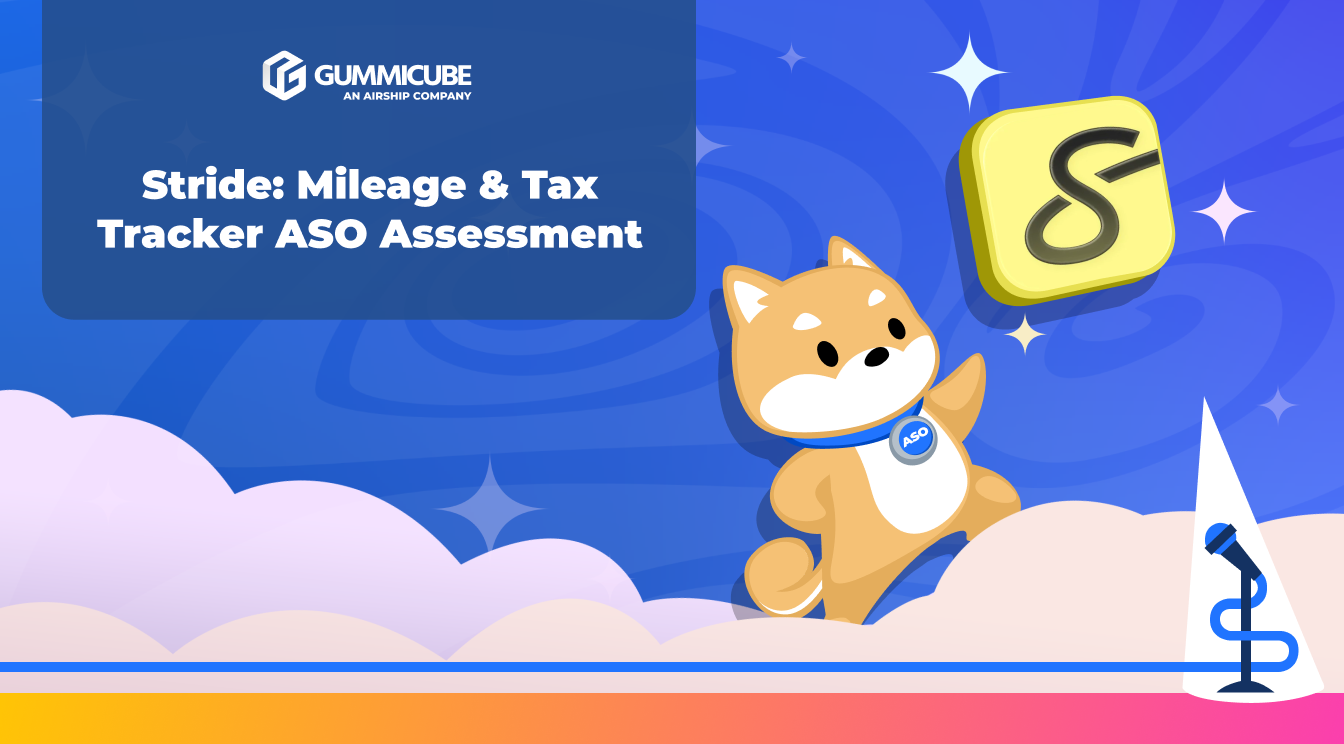
Stride: Mileage & Task Tracker ASO Assessment
Posted on January 16th, 2026
With thoughtful data-driven optimization, Stride has the potential to improve both visibility and maintain a clear value proposition for its target audience.
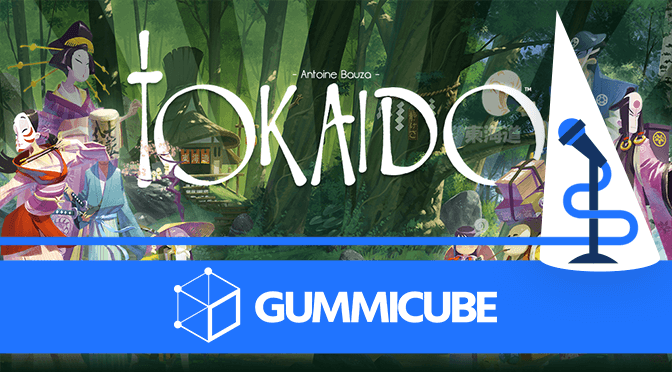
The App Description can delve into an app’s features and details, draw users in with promises of exciting gameplay and highlight what users and critics think. For today’s App Store Spotlight, we look at the description for Tokaido, a mobile app based on a popular board game. The game developers recently made it free to download, so how can they use the description to highlight its value and bring in new users?
Looking at Tokaido’s App Description, we can identify areas where it succeeds in terms of App Store Optimization and where it can improve.
On the Apple App Store, developers can add promotional text that appears before the description. Tokaido uses promotional text to tell users to “Discover the digital adaptation of Tokaido,” which is a good call to action. However, that is also the first line used in the description itself; users viewing the app on their mobile devices will just see the line repeat. The promotional text can be edited at any time, so it’s a good place to call out special offers and events. In this case, Tokaido could use the promo text to talk about how it’s currently available for free to entice users with a special offer.
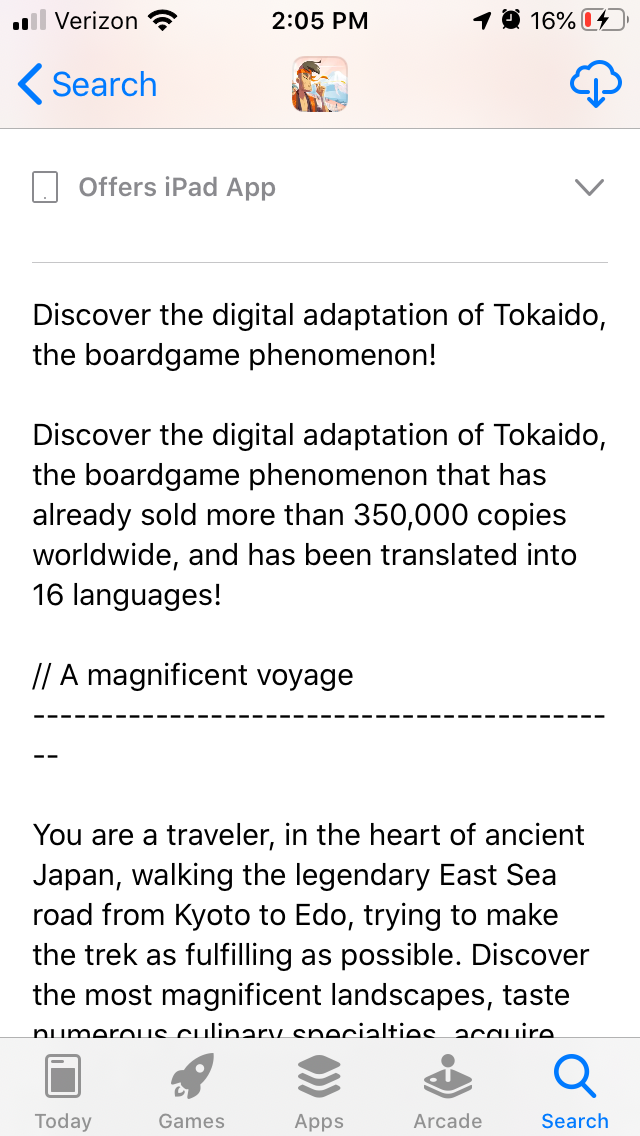
The description starts off with a good value proposition, as it mentions how the app is a digital adaptation of a popular board game. This is done in a short line that is easy to read on a phone screen at a glance.
Following that short introduction, the App Store Description describes the theme of the game, the ambiance, the multiple player modes and the awards or accolades the game received. These are all good values to call out, as they describe the app’s features and provide proof of its popularity.
While the description contains information on the theme and values of the app, the formatting may need to be adjusted for App Store Optimization best practices. Tokaido uses the same App Store Description on the Apple App Store and Google Play Store, but both have areas where they should be edited for ASO.
On the Apple App Store, each section of the description is presented as one lengthy paragraph. Overly long lines appear as a block of text that users will typically glance over, so it will not convey the full information to them. Looking at the spacing, it seems that the description is meant to be in multiple lines, but there needs to be a space between each line to work.
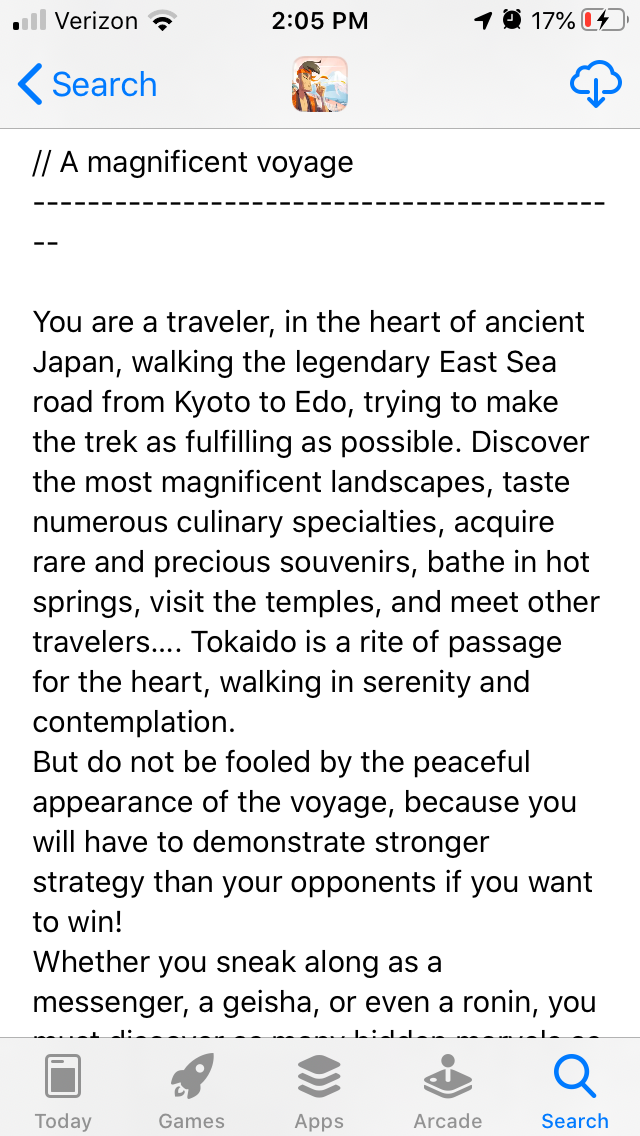
Additionally, the feature headers are preceded by dotted lines. When viewed on a device screen, these run off the screen and form a separate new line. While dividing sections with lines can be effective, it should be checked to ensure it doesn’t run too long on any device screen.
On Google Play, the description needs to utilize keywords in order to index for its targeted terms. Tokaido’s description does not include many keywords, and those it does are in the middle of a sentence. Proper keyword placement in the App Store Description is important, as Google’s algorithm crawls the description to identify key terms.
For instance, Tokaido’s description begins with: “Discover the digital adaptation of Tokaido, the boardgame phenomenon that has already sold more than 250,000 copies worldwide.” The keyword “boardgame” does not appear until the middle. If it were to restructure this sentence to call out the term earlier, it could target the term better. As it is, Tokaido only ranks in the top spot for its name, while it ranks low for relevant terms like “boardgames to go” (#20) and “strategy board games” (#172).
Tokaido’s App Store Description uses forward-slashes and dotted lines to emphasize its headers. Since Google Play allows bold text, colors and emoji, it may help to test variations using different ways of highlighting these. Certain stylistic choices may appeal more to users, so A/B testing variants can help identify what designs result in more conversions.
Tokaido’s App Store Descriptions contain useful information about the app, such as the storyline, gameplay and accolades. At the same time, this information is not conveyed in a manner that follows App Store Optimization best practices. This may result in users missing information as they glance over the description, or the formatting underperforming compared to possible variations.
App Store Descriptions should be written so that users can quickly read and absorb the information. Including keywords is important for establishing relevance to search terms and for indexation in Google Play, so developers writing descriptions should consider what key terms they want associated with the app.
It’s great that Tokaido’s developers are making the app available for free, but without proper App Store Optimization, the app may miss out on opportunities to reach and convert new users.
Want more information regarding App Store Optimization? Contact Gummicube and we’ll help get your strategy started.

With thoughtful data-driven optimization, Stride has the potential to improve both visibility and maintain a clear value proposition for its target audience.
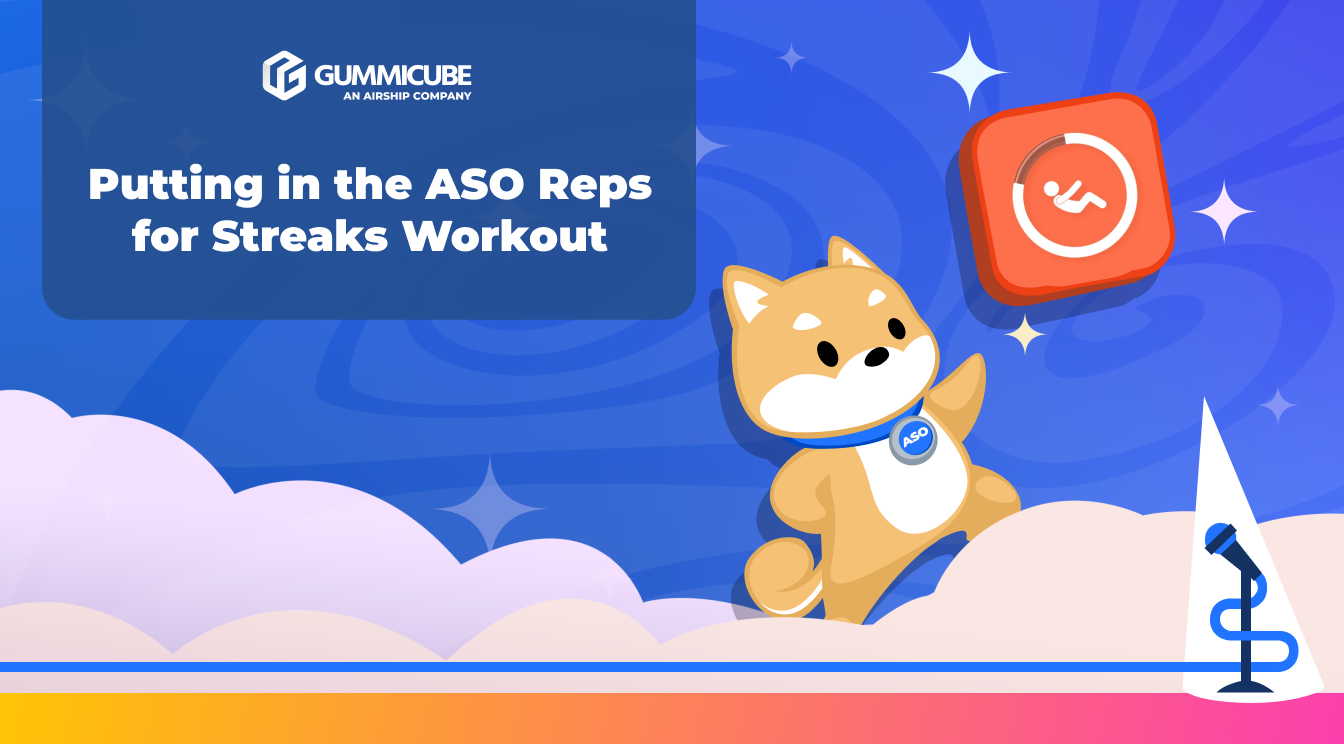
Streaks Workout has meaningful app functionality, but its app listing does not reach its full potential. Read more to see where it can improve its ASO strategy.

Small changes in Money Manager's ASO execution could result in a boost in visibility and conversion rates. Read more to see where they can improve.